Piyali Mandal in New Delhi
A rash of clearance issues with infra projects raises the question of who really is responsible for the delays.
Globally and in India, there haven't been many instances of criminal charges being filed against a corporate for not getting a green clearance before starting a project.
Yet, that is exactly what has happened with Lavassa, which got a rude shock this month when a criminal complaint was filed against it for violating procedural norms while building its city hill project.
Started in 2004, the project first ran into trouble in 2010, when the environment ministry issued a stop-work order saying environmental clearances had not been taken and rules were breached.
...
Is the green Ministry reactive, not pro-active?
Image: Vasant Kunj mall siteThe project proponents made losses to the tune of Rs 2 crore (Rs 20 million) every day due to the stoppage of work. After a year long legal battle, the Environment Ministry last week finally granted conditional clearance for the first phase of the firm's multi-million crore project in Maharashtra.
There are other projects that suffered the same fate. The swanky malls on the ridge of Vasant Kunj in New Delhi also faced the same problem a few years back.
The Delhi Development Authority had auctioned seven plots to different firms and companies for shopping complexes, malls and office space at Vasant Kunj mall site in New Delhi.
The plots had gone to Regency Park Management, Beverely Park Maintenance, Ambience Developer, Maruti Udyog, Jasmine Projects, ONGC Videsh and ONGC.
Five of these seven developers had started construction work on this land without taking the mandatory clearance under the Environment Protection Act.
...
Is the green Ministry reactive, not pro-active?
The Supreme Court put a stop to all construction activity on account of non-submission of certain environmental compliance documents.
Finally, the project was given formal green signal by the Ministry, after much delay and loss to the project proponents.
Similarly, another construction project by L&T in Kerala called the Tech park project which got final clearance this year, had reportedly started construction without obtaining prior approval under EIA notification.
The Bird Airport Hotel in Maharastra also suffered a similar fate and finally got environment clearance this year.
Many activists would argue that such stringent actions would bar companies from taking a casual approach towards the environment.
...
Is the green Ministry reactive, not pro-active?
Image: Lavasa township.Photographs: Rediff Archive
Yet, blocked clearances also take their toll on projects, stalling work, tying up capital and causing a domino effect of sorts on everything related to the project.
Meanwhile, the larger question is why are there so many construction projects stalled mid-way, citing violations? Is there an egregious problem with compliance on the part of corporates or does the problem lay with the government's approach?
Asked as to why the Ministry is always reacting to a situation rather than pro-actively framing laws, Director of MoEF said, "Laws are already in place. At times, there is lack of awareness and at times, it is sheer carelessness by the companies. Getting prior environmental clearance was made mandatory in July 2004. But the problem started when some of the companies thought they can get away and didn't even bother to get prior clearances before starting the projects."
He, however, clarified that no construction project had been stalled by MoEF so far. "For Lavasa, we had just issued a show cause notice."
...
Is the green Ministry reactive, not pro-active?
However, the NGOs disagree with the awareness bit. "Most of the project proponents are large builders who have projects elsewhere. More than lack of awareness, by and large there is a disregard for the law," Kanchi Kohli, who represents the NGO Kalpavriskh Environment Action said, "They start projects without getting the clearances in fait accompli and when it gets stuck they push for clearance saying a considerable investment is already being made," she added.
Fact is, there are not of a lot of regulatory headaches that the construction and housing sector has to deal with. The process through which one gets environment clearance is the easiest.
Unlike other projects where a comprehensive environment Impact Assement is done and public hearing is involved, the process followed for construction and housing sector is simple. The project proponents need to fill up a detailed form 1 and 1A and then it directly goes to the Expert Appraisal committee for approval.
...
Is the green Ministry reactive, not pro-active?
Prior, to 2006, the centre cleared the projects. After 2006, a notification, state level authority were set up for clearing construction projects.
In some cases, where the project is in a critically polluted area or eco-sensitive area or have certain built up area, they need to get Environment Impact Assessment report.
In the last year, the Environment Ministry has given a final go-ahead to many projects which had started construction work without getting prior green nod.
...
Is the green Ministry reactive, not pro-active?
Image: Environment Minister Jayanthi Natarajan.Photographs: Rediff Archive
Could the real reason for stalled projects lie elsewhere? Jairam Ramesh, during his tenure as the Environment Minister, had argued that there is lack of monitoring by the government, which is encouraging companies to float norms.
While the current Environment Minister Jayanthi Natarajan was not available for comments, a senior environment Ministry Official acknowledged that there is an issue with monitoring projects.
The reality is, the environment Ministry does not have the bandwidth to monitor every project that gets started. Moreover, now with the state level authorities in place, the thinking is that the problem of monitoring would get resolved.
However, companies beg to differ.
...
Is the green Ministry reactive, not pro-active?
Photographs: Rediff Archive
"If construction projects are delayed or stalled by the Ministry, it will have a negative impact on the upcoming projects. The Ministry should impose a penalty if it finds the company guilty or expedite the projects," said an official from one of the companies whose project also faces a similar fate.
"The basic problem lies with government policies. There is no uniform policy. The government also innovated the term conditional clearances, under the garb of which it gives preferential treatment to certain companies," the person added.
With the population explosion and pressure on existing cities increasing, there would be more projects of the scale of Lavasa that would come up. And if builders fail to learn their lessons from Lavasa, L&T and others, they are bound to have a bumpy ride ahead.


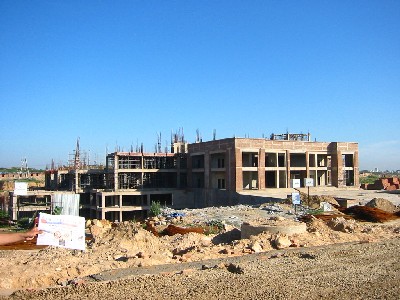
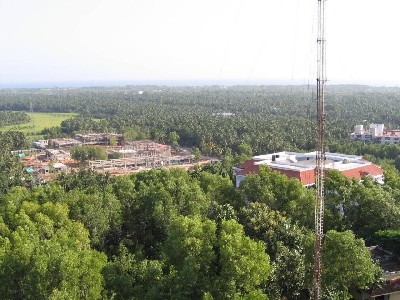
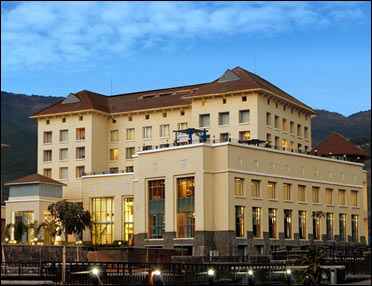
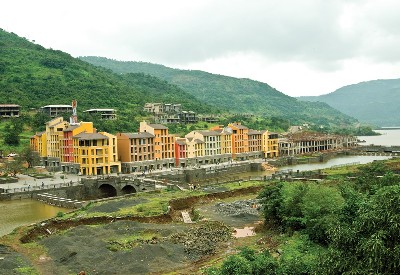
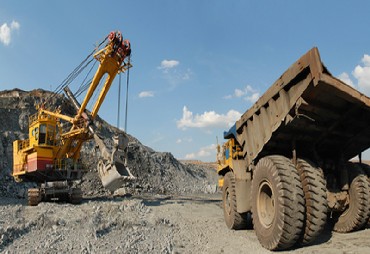



article